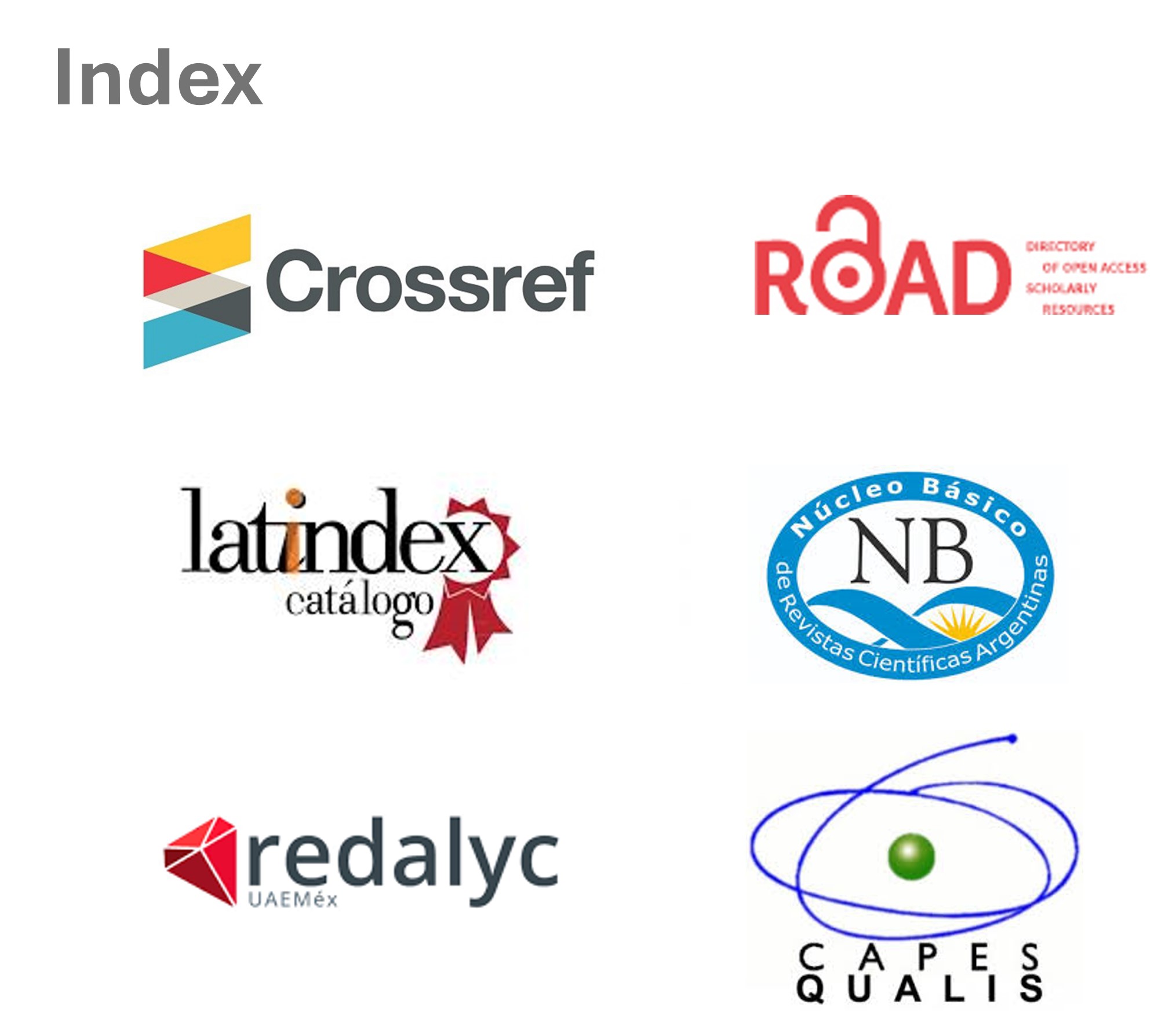An assessment of the universityindustry dynamics in Brazil. Evicences from two national experiences.
DOI:
https://doi.org/10.48160/18517072re32.316Keywords:
regional development, university-industry cooperation, science, technology and innovationAbstract
This paper aims to contribute to the intricate theme of university and industry cooperation in Brazil. The paper performs a systematic literature review of university and industry cooperation in Brazil and Latin America and analyses recent experiences of two important Brazilian universities in the framework of large cooperation projects with private enterprises. In its conclusion, the paper sustains that, despite important framework conditions for strengthening cooperation between universities and industry have been built by public policy programs throughout the country, evidences so far indicate that it is yet too early to celebrate the success of such experiences in stimulating solid linkages among universities and private enterprises in Brazil.
References
Aghion, P., M. Dewatripont e J. Stein (2008), “Academic Freedom, private-sector focus, and the process of innovation”, RAND Journal of Economics, 39, pp. 617-635.
Altbach, P. G. e J. Balán (2007), World Class Worldwide: Transforming Research Universities in Asia and Latin America, Baltimore, The Johns Hopkins University Press.
Amsden, A. H. (2004), “Import substitution in high-tech industries: Prebisch lives in Asia!”, CEPAL Review, N° 82, pp. 77-91.
Associação Nacional de Pesquisa, Desenvolvimento e Engenharia das Empresas Inovadoras- Anpei (2007), “ANPEI leva ao governo federal propostas de aperfeiçoar legislação sobre inovação tecnológica”, <http://www.anpei.org.br/imprensa/noticias/noticia-1668/>.
Botelho, A. J. e P. H. Smith (1985), The computer question in Brazil high technology in a developing society, Boston, Massachusetts Institute of Technology, Center for International Studies.
Brasil (2003), Diretrizes de política industrial, tecnológica e de comércio exterior, Brasilia, Governo Federal do Brasil.
Brasil (2004), Marco Legal da Inovação Tecnológica. Ministério da Ciência e Tecnologia, Brasília, Governo Federal do Brasil.
Brunner, J. et al., (1994), Educación superior en América Latina: una agenda de problemas, políticas y debates en el umbral del año 2000, Buenos Aires, cedes.
Chaimovich, H. (2008), “Presentación”, en Schwartzman, S. (org.), Universidad y desarrollo en Latinoamérica: experiencias exitosas de Centros de Investigación, Caracas, iesalc / Unesco y ascun, pp. iii-vii.
Cornelius, P. K. e J. W. Mcarthur (2002), The global competitiveness report 2001-2002, Ginebra, World Economic Forum.
Dedrick, J. et al. (2001), “Economic liberalization and the computer industry: comparing outcomes in Brazil and Mexico”, World Development, 29, pp. 1199-1214.
Druilhe, C. e E. Garnsey (2000), “Emergence and Growth of high-tech activity in Cambridge and Grenoble”, Entrepreneurship and Regional Advantage, 12, pp. 163-177.
Etzkowitz et al., (2000), “The future of the university and the university of the future: evolution of ivory tower to entrepreneurial paradigm”, Research Policy, 29, pp. 313-330.
Hollingsworth, J. R. (2000), “Doing institutional analysis: implications for the study of innovations”, Review of International Political Economy, 7, pp. 595-644.
Inter-American Development Bank (1997), Higher education in Latin America and the Caribbean. A strategy paper, Washington, Inter-American Development Bank.
Matias-Pereira, J. e I. Kruglianskas (2005), “Gestão de inovação: a lei de inovação tecnológica como ferramenta de apoio às políticas industrial e tecnológica do Brasil”, Revista RAE Eletrônica, vol. 4, N° 2. Disponible em <http://redalyc.uaemex.mx/src/inicio/ArtPdfRed.jsp?iCve=205114650003>.
Milanez, A. Y. (2007), “Los fondos sectoriais son instituciones adeqadas para promover o desarrollo industrial do Brasil?”, Revista do BNDES, 14, pp. 123-140.
Moreli, E. C. (2009), “As contribuições do Fundo Verde-Amarelo para as Empresas Usuárias do Fundo”, dissertação de Mestrado, fea-usp, São Paulo.
OCDE (2006), Relatório Anual, París.
Sapir, A. (2003), An agenda for a growing Europe: making the EU economic system deliver, Bruselas, Economic Commission.
Saxenian, A. (2006), The New Argonauts: Regional advantage in a Global Economy, Cambridge, Harvard University Press.
Schmitz, H. e J. E. Cassiolato (1992), Hi-tech for industrial development: lessons from the Brazilian experience in electronics and automation, Londres-Nueva York, Routledge.
Schwartzman, S. (org.) (2008), Universidad y desarrollo en Latinoamérica: experiencias exitosas de Centros de Investigación, Caracas, iesalc / Unesco y ascun.
Schwartzman, S., et al (2008), “Brasil”, en S. Schwartzman (ed.), Universidad y desarrollo en Latinoamérica: experiencias exitosas de Centros de Investigación, Caracas, iesalc / Unesco y ascun, pp., 221-305.
Späth, B. (1993), Small Firms and Development in Latin America: the role of institutional environment, human resources and industrial relations, International Institute for Labour Studies.
Sutz, J. (2000), “The university-industry-government relations in Latin America”, Research Policy, 29, pp. 279-290.
Sutz, J. (1997), Innovación y desarrollo en América Latina, Caracas, Nueva Sociedad.
Thorn, K. e M. Soo (2006), Latin American universities and the third mission: trends, challenges, and policy options, Washington, World Bank Latin American and the Caribbean Region Education Sector Unit.
Tigre, P. B., e A. J. Botelho (2001), “Brazil meets the global challenge: iT policy in a postliberalization environment”, The Information Society, 17, pp. 91-103.
Unesco (1995), Policy paper for change and development in higher education, París.
Vessuri, H. M. C. (1990), “O inventamos o erramos: the power of science in Latin America”, World Development, 18, pp. 1543-1553.
Vessuri, H. M. C. (1995), La academia va al mercado: relaciones de científicos académicos con clientes externos, Caracas, Fondo Editorial fintec.
World Bank (2002), Constructing knowledge societies: new challenges for tertiary education, Washington, World Bank.
Yonezawa, A. (2003), “Making ‘world-class universities’: Japan’s experiment”, Higher education management and policy, 15, pp. 9-23.
Downloads
Published
How to Cite
Issue
Section
License
Copyright (c) 2011 Redes. Journal of Social Studies of Science and TechnologyThe documents published here are governed by the licensing criteria
Creative Commons Argentina.Atribución - No Comercial - Sin Obra Derivada 2.5 https://creativecommons.org/licenses/by-nc-nd/2.5/ar/













